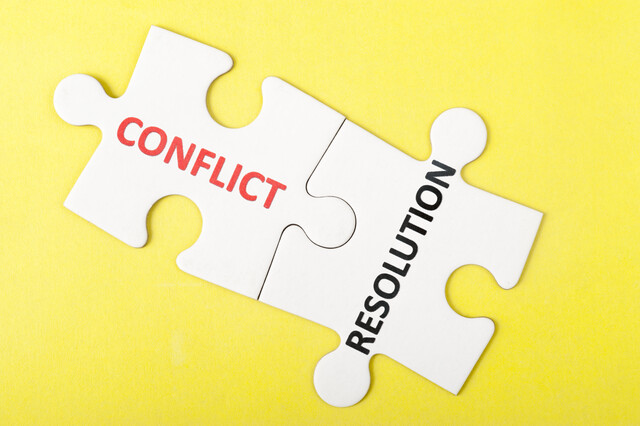Online Class: Legal Terminology 101

no certificate
with CEU Certificate*
-
14Lessons
-
20Exams &
Assignments -
5,785Students
have taken this course -
8Hours
average time -
0.8CEUs
Course Description
Unlocking the Language of the Law: Legal Terminology 101
In an ever-evolving society, legal considerations touch virtually every aspect of our daily lives. From purchasing a home, navigating tenant disputes, to drafting a will, or even selecting the right credit card, a basic comprehension of legal language is indispensable. The intertwining of our routines with legal processes underscores the significance of understanding this distinct language. Enter Legal Terminology 101, your compass to navigating the vast seas of legal lexicon.
Why This Course?
Legal documents, though foundational in many transactions, often appear as a maze of complex words and phrases. A purchase agreement for your dream home might be riddled with terms like "contingencies," "escrow," or "liens." While hiring a lawyer can provide guidance, possessing firsthand knowledge empowers you to make informed decisions.
Legal Terminology 101 is designed for anyone aiming to demystify the common, yet often perplexing, legal terms. Our meticulously crafted, self-paced lessons are complemented by sound files for immediate pronunciation clarity. This ensures not only textual, but also auditory familiarity, adding another dimension to your learning.
Whether you are managing a household, a student aiming to supplement their academic journey, or someone charting a course in the legal or business sectors, this course offers invaluable insights. Think of it as learning a new dialect - the 'legal dialect' - enhancing your communicative toolbox.
Course Breakdown
-
Lesson 1: Introduction to Legal Terminology - Dive into the basics, setting a strong foundation for the lessons ahead.
-
Lesson 2: The American Legal System - Get acquainted with the pillars of the U.S. legal framework, its branches, and their distinct roles.
-
Lesson 3: The Litigation Process - From filing a lawsuit to reaching a resolution, trace the lifecycle of a typical court case.
-
Lesson 4: Civil Actions - Explore non-criminal lawsuits, where individuals or entities seek to resolve disputes.
-
Lesson 5: Criminal Law - Delve into laws related to crimes and their repercussions. Why is one action considered a misdemeanor while another a felony?
-
Lesson 6: Contract Law and Lease Terminology - Contracts are everywhere, from job offers to renting apartments. Understand the nuances of these binding agreements.
-
Lesson 7: Wills and Estates - Planning for the future? Grasp the intricacies of drafting wills and managing estates.
-
Lesson 8: Family Law and Domestic Relations - Unravel the complexities surrounding marriage, divorce, custody, and other family-related legal matters.
-
Lesson 9: Bankruptcy - Financial distress can be daunting. Understand the legal implications and pathways of bankruptcy.
-
Lesson 10: Tort Law - Accidents or intentional wrongs can lead to lawsuits. Discover what constitutes a tort.
-
Lesson 11: Property Law - Delve into the regulations governing property ownership, transfers, and rights.
-
Lesson 12: Partnerships - Venturing into a business collaboration? Learn the legal parameters of partnerships.
-
Lesson 13: Corporations - From startups to established giants, understand the legal scaffolding of corporations.
Following these informative lessons, students will tackle the final exam, synthesizing their newfound knowledge.
Your Legal Lexicon Journey Begins Here
Why remain on the periphery when you can be an active, informed participant in legal processes? The knowledge awaiting you in Legal Terminology 101 is more than just terminology - it's empowerment. Your proactive step today can lead to confident decisions tomorrow. Dive in, and let's unravel the law's linguistic tapestry together!
Course Motivation
In today's interconnected society, legal terms permeate almost every aspect of our daily lives.
From aspirations like buying a house or a car, to necessary activities such as securing insurance or applying for a credit card, an understanding of contracts and forms is indispensable. Yet, without a grip on legal terminology, these tasks can seem daunting.
The unpredictability of life could also land you in situations where legal advice is imperative. But how can you efficiently navigate these waters if you're overwhelmed by intricate legal vocabulary?
"Legal Terminology the Easy Way" steps in as the essential course for anyone seeking confidence in interpreting legal language. It's meticulously designed not only for those eyeing a career in the legal or business sectors but for anyone who has ever been befuddled by the complex maze of legal terms.
Gone are the days of hesitating before contractual commitments. Enrollment in this course equips you to assertively address every legal challenge, empowering you to chart your legal journey with confidence.
As you navigate this course, you'll unearth a detailed understanding of frequently encountered legal terminologies. Starting with an overview of the American legal system, the journey extends across lessons enriched with sound files, fostering confidence in both understanding and vocalizing these terms in real-life situations.
For those on the verge of property ventures, be it purchasing or renting, this course decodes the nuances of contract law, property law, and lease terminologies. It's an essential tool should you ever face landlord-tenant disagreements or related issues.
Aspiring business moguls will find the segments on partnership and corporation terminology especially enlightening. Grasping these concepts can significantly streamline daily business operations.
Being financially astute is a universally appreciated asset. Equip yourself with knowledge about bankruptcy processes, acquainting yourself with the types available to individuals.
In unexpected circumstances, the course also provides insights into tort law, elucidating personal injury legalities.
Delving into the more personal terrains, lessons encompassing domestic relations, family law, wills, and estates illuminate the legalities of intricate human relationships. Further, you'll traverse terms associated with the litigation process, distinguishing between civil and criminal trials.
To gauge your assimilation of the content, each lesson concludes with a quiz. Certain lessons also feature assignments, challenging students to contextualize the newly learned terms. To successfully conclude the course, aim for a score of 70 percent or above.
If you're determined to not be solely reliant on legal experts for guidance, then it's time to empower yourself. Delay no more; start your odyssey into the realm of legal language and arm yourself with the confidence to tackle any legal scenario.
- Completely Online
- Self-Paced
- Printable Lessons
- Full HD Video

- 6 Months to Complete
- 24/7 Availability
- Start Anytime
- PC & Mac Compatible
- Android & iOS Friendly
- Accredited CEUs

Course Lessons
Lesson 1. Legal Vocabulary Unveiled
The intricacies of legal terminology, historically steeped in a rich linguistic heritage, are gradually shedding their complexity to become more accessible. By understanding terms like 'habeas corpus' and 'equal protection,' individuals can better navigate personal and societal legal scenarios.Lesson 2. The American Legal Framework: Past and Present
The Legislative Branch, comprised of Congress's bicameral structure, plays a pivotal role in lawmaking, demonstrated by landmark acts such as the Civil Rights Act of 1964. The process involves drafting bills, securing approvals, and integrating them into the United States Code, serving as a definitive legal catalog.Lesson 3. The Litigation Process Simplified
A legal dispute commences with an 'Actionable Claim' supported by factual grievances, leading to a formal complaint that outlines key allegations. The roles of the Appellant and Attorney of Record are vital, while evidence authenticity is emphasized through the Best Evidence Rule.Lesson 4. Understanding Civil Proceedings
Equity in civil cases goes beyond monetary compensation to include judicial orders like injunctions, balancing the scales of justice. Meanwhile, civil law embraces technological advancements and promotes access to justice through initiatives like online courtrooms and pro bono services.Lesson 5. Exploring the Role of Punishment and Deterrence in Justice
Structured as a means to uphold public safety, criminal law differentiates itself from civil law through its focus on punishment for societal offenses, explained via ongoing consequences for non-compliance. This lesson outlines key aspects, such as the differentiation between felonies and misdemeanors, with detailed explanations of legal terms essential for navigating criminal justice.Lesson 6. Navigating the Intricacies of Contract Law
Contracts, whether for employment or renting, represent reciprocal commitments that hold legal significance. A thorough understanding of constructs like consideration and void contracts helps in discerning valid agreements.Lesson 7. Understanding Wills and Estates
Preparing a will ensures your final wishes are respected and helps manage the distribution of your estate. Important concepts like ademption, administrators, and codicils assist in clarifying and adjusting your plan over time.Lesson 8. Family Ties and Legal Frameworks Simplified
Annulments void marriages due to fraud or coercion, treating them as never legally existing and restoring status quo ante. Though less common than divorce, annulments address foundational relationship deceit and have seen increased requests recently.Lesson 9. Essential Insights into Bankruptcy and Financial Recovery
Critical terminologies like exemptions, judicial liens, and non-dischargeable debts create a labyrinth in bankruptcy, dictating asset retention and debt resolution. Comprehending such concepts equips debtors with the insight necessary to maneuver through the legal intricacies of the bankruptcy process.Lesson 10. Understanding Tort Law Principles
Incorporating modern insights, tort law acknowledges non-physical injuries by increasingly awarding damages for emotional distress, showcasing a deeper appreciation of human experience. This advancement fosters broader acceptance of varied forms of suffering in legal claims, reflecting evolving societal values.Lesson 11. Empowering Your Real Estate Journey
From listing agreements to warranty deeds, property law encompasses diverse legal instruments that ensure smooth and secure real estate transactions. This lesson clarifies complex concepts while promoting informed decision-making and protecting stakeholder rights.Lesson 12. Harnessing Collaborative Ventures: The Dynamic Role of Partnerships in Business Growth
A General Partnership exemplifies shared responsibility where joint authority and liability could foster innovative solutions when handled collectively. Conversely, Limited Partnerships allow for capital influx by limiting liability for passive investors, ensuring involvement only in financial stakes.Lesson 13. Corporations Unveiled
Corporations offer versatile structures that protect entrepreneurs from personal liability and optimize tax savings while providing opportunities for rapid growth through capital markets. With legal frameworks like C-Corporations and S-Corporations, businesses worldwide can transcend borders, ensuring compliance and innovation in evolving markets.Lesson 14. The Power of Lifelong Learning
The digital revolution has democratized education, offering access to an endless array of courses and learning platforms worldwide. Innovative technologies like VR and AR provide immersive learning experiences, making education more adaptable and personalized to individual needs and schedules.
Learning Outcomes
- Define key legal terms such as 'habeas corpus' and 'indictment' to demonstrate understanding of their application in legal contexts.
- Identify and describe the primary branches of the American legal system, including constitutional and statutory law, to understand their roles and functions.
- Demonstrate an understanding of the historical development and structure of the American legal system, including federalism and state autonomy.
- Describe the roles and functions of each branch of the U.S. government within the legal system, focusing on lawmaking, interpretation, and enforcement processes.
- Define the steps involved in the litigation process, including identifying actionable claims and filing a complaint with allegations.
- Identify and explain key legal roles such as the Appellant and Attorney of Record, and procedures like appeal and conflict of interest during litigation.
- Define and describe the roles and responsibilities of the plaintiff and defendant in a civil court case, including how the burden of proof impacts the plaintiff's case strategy.
- Identify and explain the significance of an Abstract of Judgment in civil litigation, including its purpose and implications for involved parties.
- Define the difference between felonies and misdemeanors by categorizing offenses according to their severity and corresponding legal consequences.
- Demonstrate understanding of criminal procedures by outlining the process from arraignment to sentencing, highlighting key legal concepts such as plea bargaining and reasonable doubt.#
- Demonstrate the ability to analyze a contract's key terms and clauses to assess rights and obligations, ensuring a comprehensive understanding for informed decision-making.
- Define key contractual terms such as acceleration clause, consideration, and breach of contract, and describe their roles in legal agreements.
- Define key terms related to wills and estates, such as ademption, codicil, and fiduciary, to demonstrate a clear understanding of their implications in legal contexts.
- Demonstrate mastery of lesson content at levels of 70% or higher.
Additional Course Information

- Document Your Lifelong Learning Achievements
- Earn an Official Certificate Documenting Course Hours and CEUs
- Verify Your Certificate with a Unique Serial Number Online
- View and Share Your Certificate Online or Download/Print as PDF
- Display Your Certificate on Your Resume and Promote Your Achievements Using Social Media

Choose Your Subscription Plan
No Certificate / No CEUs
This course only
| Includes certificate | X |
| Includes CEUs | X |
| Self-paced |

|
| Instructor support |

|
| Time to complete | 6 months |
| No. of courses | 1 course |
Certificate & CEUs
This course only
| Includes certificate |

|
| Includes CEUs |

|
| Self-paced |

|
| Instructor support |

|
| Time to complete | 6 months |
| No. of courses | 1 course |
Certificates & CEUs
Includes all 600+ courses
| Includes certificate |

|
| Includes CEUs |

|
| Self-paced |

|
| Instructor support |

|
| Time to complete | 12 Months |
| No. of courses | 600+ |
Certificates & CEUs
Includes all 600+ courses
| Includes certificate |

|
| Includes CEUs |

|
| Self-paced |

|
| Instructor support |

|
| Time to complete | 24 Months |
| No. of courses | 600+ |
Student Testimonials
- "I enjoyed this course very much. I feel more confident when speaking with clients and corresponding with them in writing. Also, I feel I can communicate better in general, and with my attorney that I am working with." -- Adriana T.
- "It was a great course. I really enjoyed taking this class. It was definitely helpful. I have already suggested others to sign up for the class." -- Joy B.
- "I definitely appreciate the instructor's effort of compiling this course. He has covered a vast area of our legal system and explained it in very simple terms which are easy to understand." -- Warta C.
- "I thought that this course was very good. It explained all of the legal terms that we hear off and then think we know, but after doing this course, you are well put in the picture as to what they actually mean and so you can understand them better in the context that they are used in again in the future!" -- Padraig B.
- "The course was quite interesting. At the same time the instructor knew how to present the lesson to his students." -- Patricia T.
- "Thank you very much , this course taught me a lot and I really appreciate it ." -- Lucas M.
- "I learned a lot of things. The teacher was very good." -- Manju U.
- "This was a good course to take. The instructor was very helpful and knowledgeable." -- Joe L.
- "Great course and instructor." -- Jenifer H.
- "I truly enjoyed the experience." -- Dipti P.
Related Courses
-
 25 hours
2.5 CEUs
Human Resources Productivity Course Bundle
+ More Info
25 hours
2.5 CEUs
Human Resources Productivity Course Bundle
+ More Info
-
 72 hours
7.2 CEUs
Writing Help Course Bundle
+ More Info
72 hours
7.2 CEUs
Writing Help Course Bundle
+ More Info
-
 36 hours
3.6 CEUs
Ultimate Secretary Training Bundle
+ More Info
36 hours
3.6 CEUs
Ultimate Secretary Training Bundle
+ More Info
-
 12 hours
1.2 CEUs
Advertising, Marketing and Sales Writing
+ More Info
12 hours
1.2 CEUs
Advertising, Marketing and Sales Writing
+ More Info
-
 5 hours
0.5 CEUs
Mastering Conversation Skills
+ More Info
5 hours
0.5 CEUs
Mastering Conversation Skills
+ More Info
-
 7 hours
0.7 CEUs
How to Deal with Difficult Personalities
+ More Info
7 hours
0.7 CEUs
How to Deal with Difficult Personalities
+ More Info
-
 8 hours
0.8 CEUs
How to Be an Effective Administrative Assistant
+ More Info
8 hours
0.8 CEUs
How to Be an Effective Administrative Assistant
+ More Info
-
 6 hours
0.6 CEUs
Freelance Writing 101
+ More Info
6 hours
0.6 CEUs
Freelance Writing 101
+ More Info
-
 5 hours
0.5 CEUs
Critical Thinking Skills
+ More Info
5 hours
0.5 CEUs
Critical Thinking Skills
+ More Info
-
 7 hours
0.7 CEUs
Negotiation Skills
+ More Info
7 hours
0.7 CEUs
Negotiation Skills
+ More Info
-
 5 hours
0.5 CEUs
Habits of Millionaires
+ More Info
5 hours
0.5 CEUs
Habits of Millionaires
+ More Info
-
 9 hours
0.9 CEUs
ABCs of Technical Writing
+ More Info
9 hours
0.9 CEUs
ABCs of Technical Writing
+ More Info
-
 7 hours
0.7 CEUs
Healthy Relationships
+ More Info
7 hours
0.7 CEUs
Healthy Relationships
+ More Info
-
 4 hours
0.4 CEUs
Understanding Workers' Compensation
+ More Info
4 hours
0.4 CEUs
Understanding Workers' Compensation
+ More Info
-
 6 hours
0.6 CEUs
Confidence Building
+ More Info
6 hours
0.6 CEUs
Confidence Building
+ More Info
-
 7 hours
0.7 CEUs
Innovative Thinking Skills
+ More Info
7 hours
0.7 CEUs
Innovative Thinking Skills
+ More Info
-
 7 hours
0.7 CEUs
Employment Law Fundamentals
+ More Info
7 hours
0.7 CEUs
Employment Law Fundamentals
+ More Info
-
 10 hours
1.0 CEUs
Global Anti-Corruption and Bribery
+ More Info
10 hours
1.0 CEUs
Global Anti-Corruption and Bribery
+ More Info
-
 5 hours
0.5 CEUs
Retail Mastery: Crafting a Business That Stands Out
+ More Info
5 hours
0.5 CEUs
Retail Mastery: Crafting a Business That Stands Out
+ More Info
-
 5 hours
0.5 CEUs
Lawful Employee Termination
+ More Info
5 hours
0.5 CEUs
Lawful Employee Termination
+ More Info
-
 5 hours
0.5 CEUs
Creative Thinking Skills
+ More Info
5 hours
0.5 CEUs
Creative Thinking Skills
+ More Info
-
 6 hours
0.6 CEUs
Persuasion Techniques
+ More Info
6 hours
0.6 CEUs
Persuasion Techniques
+ More Info
-
 10 hours
1.0 CEUs
Contract Law 101 - An Introduction
+ More Info
10 hours
1.0 CEUs
Contract Law 101 - An Introduction
+ More Info
-
 5 hours
0.5 CEUs
Workplace Safety
+ More Info
5 hours
0.5 CEUs
Workplace Safety
+ More Info
-
 12 hours
1.2 CEUs
Write to Win: Secrets of Persuasive Writing
+ More Info
12 hours
1.2 CEUs
Write to Win: Secrets of Persuasive Writing
+ More Info
-
 2 hours
0.2 CEUs
Understanding Insurance Types
+ More Info
2 hours
0.2 CEUs
Understanding Insurance Types
+ More Info
-
 7 hours
0.7 CEUs
Workplace Sexual Harassment in the #MeToo Era
+ More Info
7 hours
0.7 CEUs
Workplace Sexual Harassment in the #MeToo Era
+ More Info
-
 5 hours
0.5 CEUs
How to Write a Business Plan
+ More Info
5 hours
0.5 CEUs
How to Write a Business Plan
+ More Info
-
 5 hours
0.5 CEUs
Emotional Intelligence
+ More Info
5 hours
0.5 CEUs
Emotional Intelligence
+ More Info
-
 8 hours
0.8 CEUs
General Secretary
+ More Info
8 hours
0.8 CEUs
General Secretary
+ More Info
-
 8 hours
0.8 CEUs
Virtual Assistant 101
+ More Info
8 hours
0.8 CEUs
Virtual Assistant 101
+ More Info
-
 11 hours
1.1 CEUs
Mediation 101
+ More Info
11 hours
1.1 CEUs
Mediation 101
+ More Info






